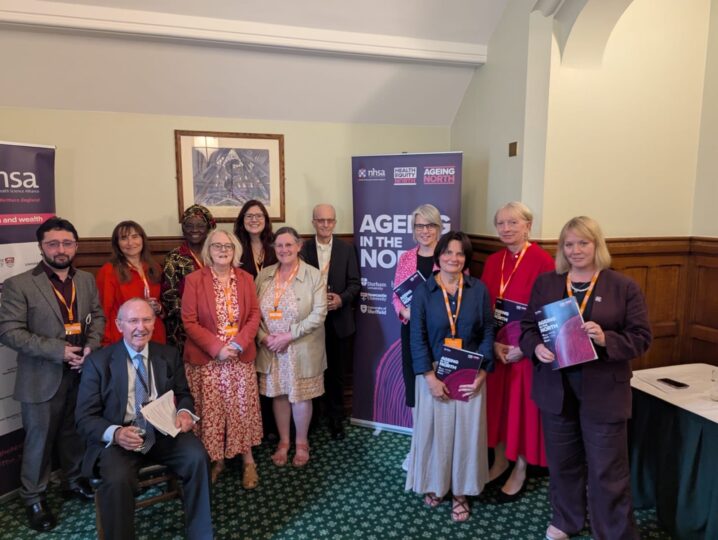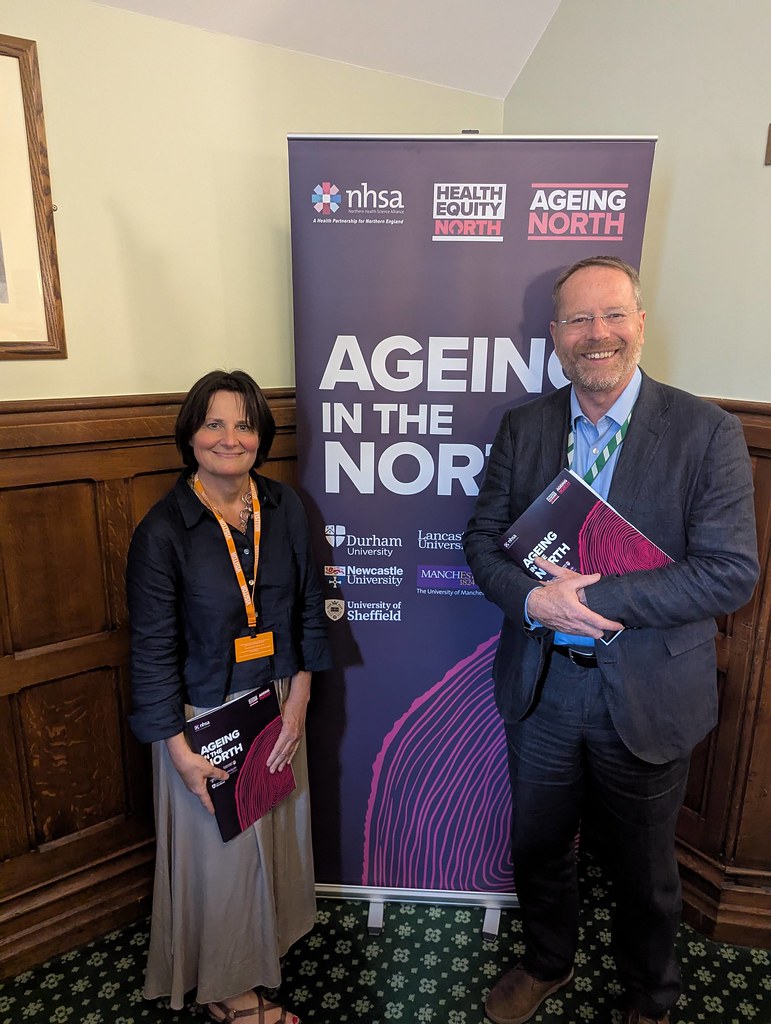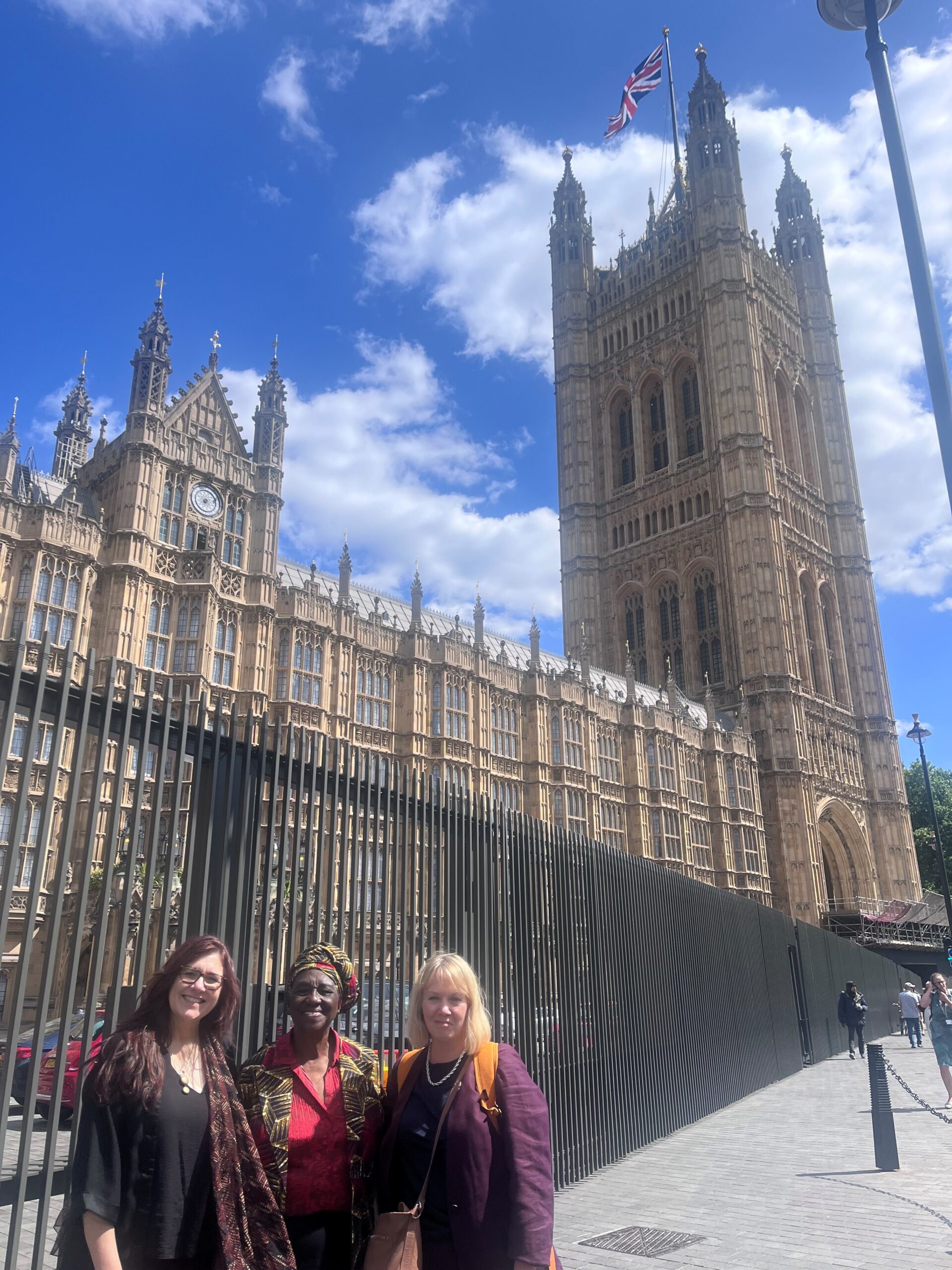
From data to action: How we launched a report that shines a spotlight on unequal ageing
A blog about our Ageing in the North report and Parliamentary launch
The recent parliamentary launch of the NHSA Ageing in the North report offers a powerful example of the impact the Northern Health Science Alliance (NHSA) can have by convening experts to work together across the region.
As the NHSA’s Ageing North programme lead, I have been working with colleagues from five of our member institutions (The University of Sheffield, Lancaster University, The University of Manchester, Newcastle University and Durham University) who came together to explore a pressing question: what is it like to age in the North compared to other parts of the country? This question sparked a collaborative effort involving months of dialogue, prioritisation, data analysis and writing. The team of over 30 authors identified key themes, gathered evidence, produced multiple drafts, and worked through a detailed NHSA editorial and design process. They also calculated the economic implications of unequal ageing, which highlighted the urgency of the challenge.
As with all our major NHSA and Health Equity North reports, it was important to launch the findings in a way that ensured maximum impact and visibility. Thanks to the NHSA’s public affairs and communications team, we hosted a successful launch event in Westminster on Monday 23 June. We were delighted that the event was sponsored by Anna Dixon MP for Shipley, whose longstanding leadership in ageing research and advocacy made her an ideal champion for the report.
The Ageing in the North report launch generated widespread media coverage and included a strong turnout on the day from policymakers including Andy McNae MP for Rossendale and Darwen, Lorraine Beavers MP for Blackpool North and Fleetwood, Jeff Smith MP for Manchester Withingon and representatives from the offices of Liz Twist MP for Blaydon and Consett and Julie Minns MP for Carlisle. 
We were also joined by key national stakeholders including representatives from the Vivensa Foundation, MRC, Innovate UK, the Centre for Ageing Better, the International Longevity Centre, and the British Geriatrics Society.
Speakers at the event set out how people in the North are ageing unequally compared to other regions, pointing to persistent structural inequalities and highlighting the urgent need for policy change.
Anna Dixon MP offered the keynote address, emphasising the regional disparities that older people face and the need for targeted policy action. Anna welcomed the Ageing in the North report as a powerful and timely intervention in the ongoing conversation about regional inequality. She highlighted housing, employment, and health as three critical domains from the report in which older people in the North face pronounced disadvantage and pointed to national policies (such as home insulation schemes, employment support programmes, and efforts to boost accessible housing) as opportunities to help close these gaps. There is clearly a need for sustained political attention to address poor quality housing, economic inactivity among 50–64-year-olds, and poor health in later life for those living in the North.
Professor Alan Walker from the University of Sheffield described the Ageing in the North report as the product of collective concern and deep expertise. On behalf of the authors, he summarised the report’s key findings and 12 recommendations. He made it clear that whilst the report does not deny the presence of poverty or illness in other parts of the country, it does show that inequalities are more severe and systemic in the North. Whether in terms of retirement age, pension income, food insecurity, or loneliness, older people in the North are consistently worse off than their southern counterparts. Their ageing is effectively “accelerated” due to intersecting disadvantages: economic, social, and health-related.
He emphasised the staggering costs of inaction: from £588 million annually due to non-decent homes to over £10 billion in lost GDP through economic inactivity. Crucially, he argued that these inequalities are not inevitable and not a legacy of history alone, but the result of policy choices that have consistently underinvested in the North. Reversing this trend, he insisted, requires urgent cross-government action focused on prevention, targeted investment, and a life-course approach. Rather than this being seen as a ‘northern problem’, Professor Walker suggested that “It is a national problem, and one that national policy must address.”
Elaine Unegbu, Chair of the Greater Manchester Older People’s Network, delivered a compelling personal testimony, challenging perceptions that ageing is synonymous with decline and urging a more empowering approach and a call to reframe the narrative around ageing: “Growing older is not becoming invisible,” she declared, insisting that the challenges older people in the North face, including poverty, poor housing, exclusion from services and decisions, are not natural outcomes of ageing but symptoms of injustice. Ageism, she argued, is deeply embedded in policy and practice, from inaccessible housing to digital exclusion and underfunded care systems.

Dr Mandy Dixon, Elaine Unegbu & Hannah Davies
Elaine endorsed the report’s recommendations, including: to adopt a life-course approach across all government departments; prioritise investment in the North; develop a national strategy for accessible housing; and support employment for over-50s. Above all, she stressed the need for older people’s voices to be heard in co-producing solutions, concluding that: “Ageing is our future and we have the power to shape that future-starting here.”
The NHSA’s Chief Executive Hannah Davies closed the event by thanking the cross-institutional team behind the report and reinforcing its central message: that older people in the North face structural inequalities that are morally, socially, and economically unsustainable. From poor housing and increased frailty to greater risk of food insecurity and delayed care, the evidence from the report is clear and urgent.
Hannah issued a call to action for policymakers to act boldly on the report’s recommendations, and for researchers and stakeholders to use the report as an advocacy tool, highlighting the need for coordinated regional and national efforts to ensure that ageing in the North becomes fairer, healthier, and more dignified for all.
We are grateful to everyone who helped bring this report to life through such a positive and collaborative effort. The challenge now is to sustain the momentum and ensure the report drives real change. The 12 recommendations outlined in the report will be our focus going forward. Through the Ageing North network and engagement with the wider community of stakeholders, we will continue working to advance this agenda. Like the report itself, this next phase will require collaborative effort across geographies, sectors, and disciplines.
You can view the Ageing in the North report here and access photographs from the launch event here.
We look forward to taking this important work moving forward.
Dr Mandy Dixon
NHSA Ageing North Programme Lead, Northern Health Science Alliance



